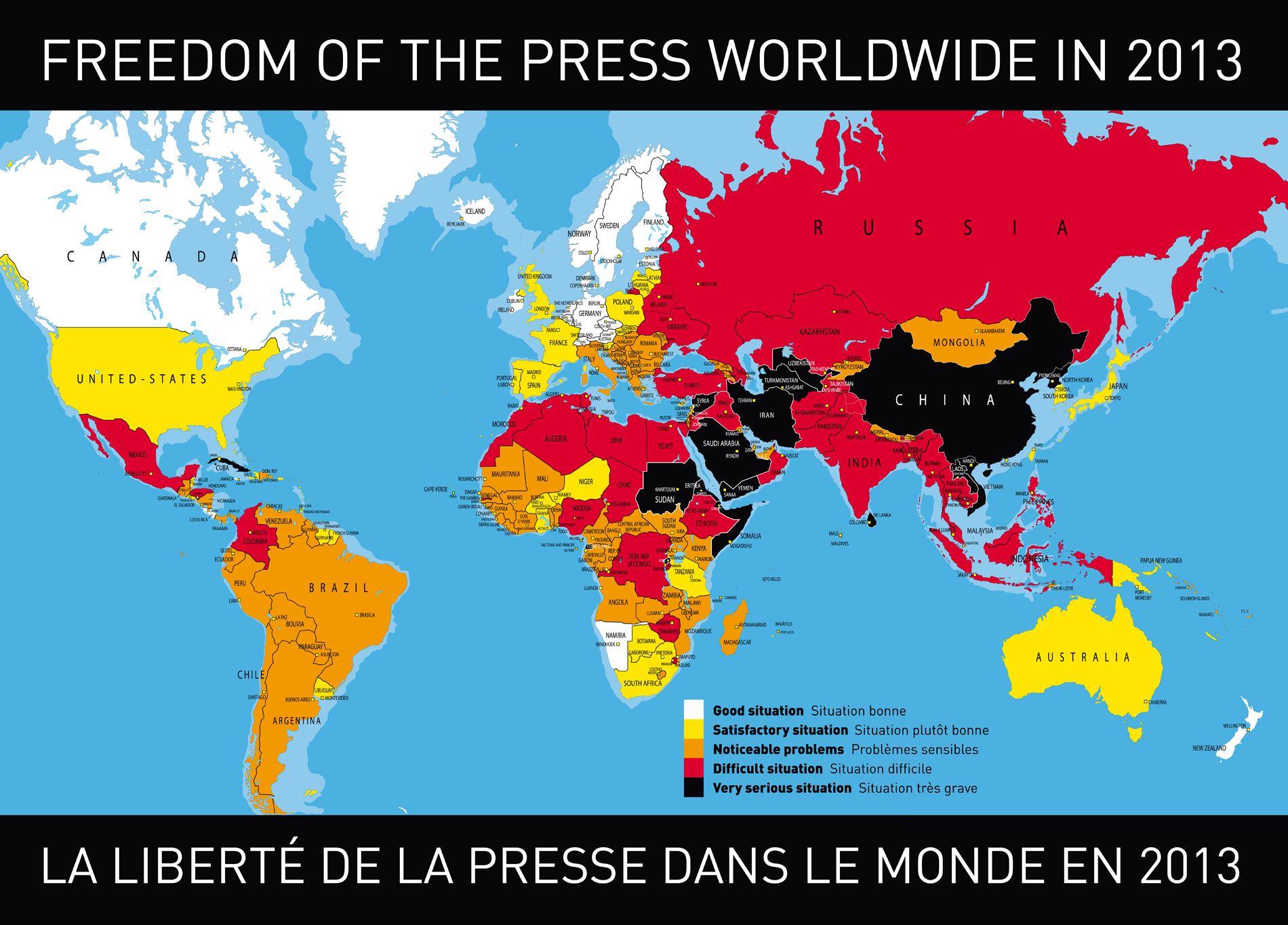For the past two decades, World Press Freedom Day has served to remind us of the vital importance of the freedom of the press to human rights, good governance and freedom. Every day, in countries with repressive regimes, overreaching governments or in war zones, journalists put their lives on the line to cover the stories that need to be told. They do so at their own peril, risking their freedom and sometimes their very lives.
Sadly, since the creation of World Press Freedom Day, the date has also served as a reminder of the dangers that journalists face, the shortcomings in our work to protect them, and the heroes whose lives were lost. For those in Congress who care about this issue, it's a stark reminder that our work is far from done, and we must continue to call out oppressive regimes and work to provide the training necessary for journalists to be able to do their jobs in as safe a manner as possible.

It's important to note that press freedom no longer just applies to traditional press outlets -- print, television and radio -- but has expanded to a new frontier of online activists, netizens and citizen journalists, who put their lives on the line every day. Even though they do not fit the traditional definition of journalists, their work is no less important, and in countries like Syria -- struggling with an ongoing civil war -- their work has often been the only reliable source of reporting on a regime's brutal crackdowns and violence against its own people.
While progress is being made on the press freedom front, we've also seen that the percentage of people worldwide who enjoy a free media environment has fallen to its lowest point in more than a decade.
According to Freedom House -- only 14 percent of the world live in a country that have a truly free press, and according to Reporters Without Borders, 2013 has already seen a good deal of bloodshed for journalists -- 19 traditional journalists and another nine netizens and citizen journalists have been killed; 174 journalists and 162 netizens and citizen journalists have been imprisoned. 2012 was no less bloody, with 90 journalists, six media assistants and 48 netizens and citizens journalists killed. But even though these yearly reports are troubling, there are still reasons for optimism.
New governments in West Africa have shown greater respect for press freedom and have cut down on their legal and physical harassment of journalists. We've seen improvements in the Caucasus region and Mexico has passed critical legislation to protect journalists and give officials the authority to prosecute crimes against the press. And the Burmese people now have more access to free information and the government has released many of imprisoned bloggers and video journalists.
Simply showing up for work should never be a cause for harassment, intimidation or worse. I want to "shine the light" on one particularly troubling situation.
Turkey has become one of the world's largest prisons for journalists, with more than sixty members of the press behind bars on dubious charges. Currently a number of journalists are on trial in the "Ergenekon" conspiracy trial -- along with more than 300 others ranging from politicians and academics to retired military officers -- in which the Turkish government is trying to crack down on secular opposition to the Islamic government, including journalists who criticized the prosecutions and questioned the reach of the investigation. Their crimes are nothing more than reporting and writing columns that do not toe the ruling government's party line -- not crimes deserving of imprisonment, let alone life sentences.
Turkey must embrace the full mantle of democracy, rather than selectively choosing which freedoms to allow and which to shamefully ignore.
The U.S. government will continue to work with its international partners to promote freedom in all its forms -- including press freedom. While we in this country take for granted a free press who can report on anything, for the majority of the world, it's still an everyday struggle. Today, we must take time to pay tribute to those journalists across the globe, saluting their never-ending bravery and reflecting on the importance of their work to advance the most basic human right -- freedom.
Rep. Schiff is the chairman of the Congressional Caucus for the Freedom of the Press, which creates a forum to combat and condemn media censorship and the persecution of journalists around the world.